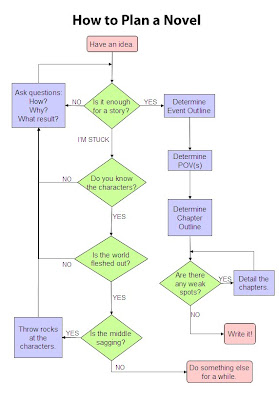Heyya, mates. Adam asked me to send the post on account of it's Talk Like a Pirate Day, and I reck I'm the only pirate he knows.
Oy, where are my courts? Name's Sam Draper, and I'm what some folks (derisive folks, mind you) call an air pirate. I ain't flailing though; jacks and govvies all stoke the same, so I reck it must be true as truth, aye?
Here, now. I'm supposed to be teaching you how to speak skyler. Speaking skyler's a bit -
What's a skyler? They're the ones sailing the skies, aye? Merchers, gunners, jacks, runners, pirates... anyone working an airship is a skyler. Everyone else is just a groundhog.
Anyway, skylers talk a bit different from the pirates you know. We ain't got a lot of ye's or me's or be's, and there ain't no mizzenmast or foresail on an airship.
A lot of what we do is in the skies, aye? So if you want to ask if someone understands you say, "We breezy?" To tell them no worries, you can say no worries or say it's "birds in the wind." If you mean what you say, tell them "sure as clouds fly" or "I ain't drumming you," or you can quote the JI: "true as truth."
The JI? That's... you know, we ain't got time for that flack.
Another thing skylers billy with is dark water. The dark is just a patch of ocean black as shadow, but it'll pack you, sure as clouds. I've seen big men - men you could stab in the gentlemen and they'd complain of an itch - fall to the dark and scream like a baby girl. It's a fate I wouldn't wish on any man, not even my uncle, breezy? And it colors our speech as much as the sky.
The dark is trouble. You see something's wrong with your mate? You ask him, "What's the dark, mate?" Someone who don't flail much when there's trouble, you might say they'd "float in the dark." It goes the other way too, aye? Say the jacks blow a boiler just when they were on your keel. You'd call that "a spot of blue in the dark" or just "a spot." Can't see the good in something? "Where's the spot in that?" you'd say.
Anyway, that's the whiff of it. I'd give you some words to say for when a merc'ing piker tries to throw you over, or I could teach you how to jape a gobby 'fore he grubs your coin, but I reck I got you shiners scatty as it is. Anyway, jacks are on me like ducks, so I best be blowing. Thanks for reading, aye?




